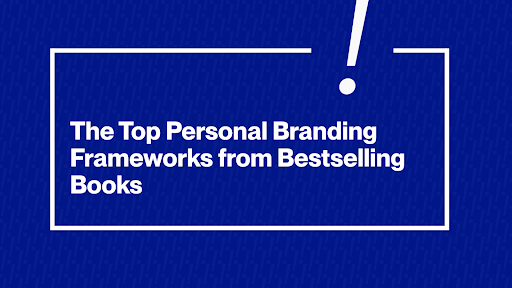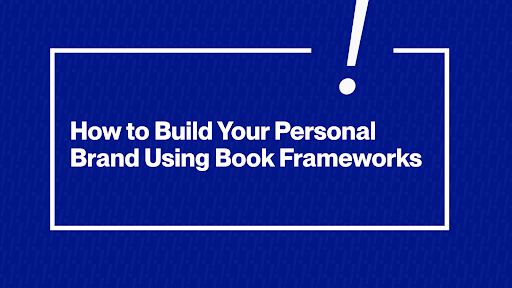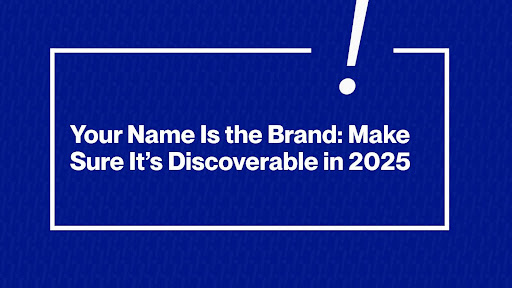Introduction to Personal Branding
Once in a while there comes a group of people who redefine the industry or niche they work in. You can absolutely find such people in every industry or sector. To give you the quickest answer, Simon Sinek and others are just those people in the world of personal branding. Observing the importance of personal branding as the main pillar, Simon Sinek, a renowned thought leader, popularized the concept of “Start With Why.” This concept emphasizes the purpose that drives connection and influence. His framework, alongside insights from other experts, has reshaped how individuals craft their personal brands. A personal brand taking birth and having strong links to the purpose is authentic, memorable, and impactful, resonating with audiences on a deeper level. This blog explores what Sinek and others got right about personal brand purpose, diving into its importance, practical applications, and strategies to align your brand with your core values. By understanding and implementing these principles, you can create a personal brand that stands out in a crowded digital landscape.
The reason we crafted this blog is because we have personally created a personal branding e-book called “Become Someone From No One.” Both are the brainchild of Bhavik Sarkhedi and Sahil Gandhi. Both are renowned in the field of branding and helping brands become better and achieve their targets. They own one of the top Webflow agency, Blushush, and a personal branding firm, Ohh My Brand. Today, with the help of this blog, we are going to decipher how Simon Sinek, along with a couple of other personal branding experts, has unlocked the true power of personal brand purpose and success.
Hop on the ride starts here.
The Power of “Why” in Personal Branding
Simon Sinek’s “Golden Circle” model, starting with why, then how, and finally what, has become a blueprint for building purpose-driven brands. The “why” represents your core purpose, the reason you exist beyond making money or achieving status. For personal branding, this translates to identifying what drives you, what you stand for, and what unique value you bring to the world. Sinek argues that people connect with the “why” because it taps into emotions, fostering trust and loyalty. When your personal brand communicates a clear purpose, it differentiates you from others who focus solely on their skills or achievements. For instance, a graphic designer emphasizing creating art to inspire social change will likely run parallel more than the one who only showcases technical expertise. Purpose makes your brand relatable and human. Always remember that.
Authenticity as the Foundation
You are you, and that is your superpower. Nobody can be you, and that’s their weakness. Stop taking uniqueness and authenticity for corporate jargon.This is the difference that Sinek and others like Brené Brown emphasize in its critical role. Brown’s work on vulnerability highlights that authentic brands are built on honesty and self-awareness. The importance of personal brand purpose must reflect your true values, not a manufactured persona designed to impress.
People can sense inauthenticity, and it erodes trust. If you are copying someone, then you are already not yourself, which itself is a drastic mistake. To be authentic, you need to introspect and define what matters most to you.
Are you driven by innovation, community, or justice?
Once identified, your purpose should permeate every aspect of your brand: your social media posts, professional interactions, and even the way you handle setbacks. Authenticity isn’t about perfection; it’s about consistency between your actions and your stated purpose.
The Role of Storytelling
This is where things start getting serious. A good story is something everyone wants to hear. A good narrative, if used with a good personal branding framework, can make all the difference to your tale. Storytelling is an art as well as a skill. If you crack this in personal branding, you automatically put yourself way ahead of others. Guess what Simon Sinek did? Exactly the same.
Sinek often stresses that storytelling is how we communicate purpose. A compelling personal brand tells a story that connects your “why” to your audience’s values. Other thought leaders, like Donald Miller, author of Building a StoryBrand, reinforce this by suggesting that your brand should position you as a guide, not the hero, in your audience’s journey. Share stories that illustrate your purpose in action, whether it’s a career pivot driven by a desire to make a difference or a small act of kindness that reflects your values. For instance, a consultant might share how they helped a struggling business thrive, tying it to their purpose of empowering others. Effective storytelling humanizes your brand, making it relatable and memorable.
Emotional Connection and Trust
A purpose-driven personal brand leads to breeding emotional connections in your customers and clients and being honest with your whole target audience, which are vital for building trust. Sinek’s stress on inspiring rather than manipulating aligns with psychological research showing that people are drawn to brands that evoke positive emotions. When your personal brand reflects a purpose that runs parallel with your audience’s values, it creates a sense of shared mission. So the audience thinks that the brand itself is a mindset that they share a common sentiment with.
To give you an example, an entrepreneur whose purpose is sustainability will attract environmentally conscious followers who trust their commitment. Experts like Seth Godin, who champions building “tribes,” argue that purpose unites people around a common cause. Your brand becomes a beacon for those who share your vision, creating a loyal community that amplifies your impact.
Consistency Across Platforms
This is something we have already discussed a thousand times now, but somehow this comes up again. The best part is, I’m willing to talk about it for as long as it takes for you to understand that you need to be consistent with your actions. A strong personal brand requires consistency, a point Sinek and others like Gary Vaynerchuk emphasize.
Your purpose should be evident across all platforms: LinkedIn, Twitter, Instagram, personal websites, or even in-person interactions. Inconsistent messaging dilutes your brand’s impact and confuses your audience. Vaynerchuk, a marketing guru, stresses that every piece of content you share should reinforce your core purpose. If your purpose is to inspire creativity, your Instagram posts, blog articles, and keynote speeches should all reflect that theme. Learn and focus on building your personal brand using book frameworks. Consistency doesn’t mean repetition; it means aligning diverse content with a unified message. This builds recognition and trust, making your brand instantly identifiable.
Purpose as a Differentiator
This is where you understand the key difference that you must draw to bring in the attention. You as a pursuer of personal branding have to use your purpose as a differentiator. The market has become so clamorous and so crowded with brands, clients, customers, and all these marketing gimmicks that it has become impossible to spot the right intentions and emotions in the market. This is why you need purpose because purpose sets you apart. Sinek’s teachings highlight that while many people can offer similar skills or services, your “why” is unique. Other experts, like Dorie Clark, author of Stand Out, argue that a clear purpose helps you carve a niche.
For instance, if there are two financial advisors with similar qualifications, the one who focuses on empowering women to achieve financial independence stands out. Your purpose becomes your unique selling proposition, attracting opportunities and audiences that align with your values. This differentiation is especially crucial in saturated industries where technical skills alone aren’t enough to shine. This is just one simple example for you to learn.
Practical Steps to Define Your Purpose
Okay now, we went through how Simon Sinek and others have made it big and right using the correct way of Simon Sinek personal brand purpose. Here are some of the key practical steps that will help you define your purpose.
- Align purpose with action
- Build a community around your purpose.
- Face challenges and overcome obstacles
- Keeping track of the impact and progress of your purpose
- Lastly, evolve your purpose from time to time.
All these pointers are so simple and are also some of the best personal branding insights from thought leaders that I don’t think there is any particular need for me to explain them thoroughly to you.
Conclusion: Crafting Your Purpose-Driven Brand
And here we are. In conclusion, I would like to mention that Simon Sinek and other thought leaders have smartly shown us that a personal brand rooted in purpose is more than a marketing tool; it’s a way to create meaningful connections and lasting impact. By starting with your “why,” embracing authenticity, and aligning your actions with your values, you can build a brand that stands out and inspires. You can always read the books by these branding experts, and while challenges like consistency and evolution arise, the rewards trust, loyalty, and influence are worth the effort. Having said that, we would again like to mention that you can download the Personal Branding Gold Mine eBook called “Become Someone From No One.” This will be your guide in building a purpose-driven brand. This book is crafted by Sahil Gandhi aka “Brand Professor” and Bhavik Sarkhedi who have a long and rich experience of helping brands achieve their targets and branding goals.
Take time to define your purpose, share it through compelling stories, and engage your community. In doing so, you’ll create a personal brand so that next time someone asks you why purpose matters in personal branding your operations will answer the question and it will also reflect who you along with leaving a positive mark on the world.




